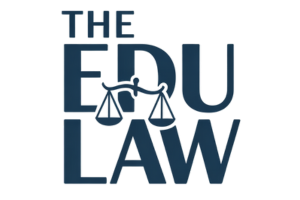Shareholder disputes arise when individuals who own part of a company clash over rights, control, or expectations.
Such conflicts carry serious consequences in closely held companies, where ownership and management overlap and relationships are often personal.
Disagreements can escalate quickly, especially when governance documents are weak or communication breaks down.
Small issues can grow into lawsuits when parties feel excluded, sidelined, or financially harmed.
That is why it is important to have a clear understanding of the differences between what it means to be a shareholder in a company and what a company is.
Common Causes of Shareholder Disputes

Shareholder conflict often grows out of structural weaknesses, unclear expectations, and breakdowns in trust.
Many companies begin with enthusiasm and informal practices, only to discover later that missing processes or unclear authority create significant tension.
Governance Failures
Early-stage businesses frequently rely on informal arrangements, which later prove inadequate once money, risk, and expectations increase.
Unclear authority, missing documentation, and misplaced assumptions make disagreements almost inevitable.
- Roles that shift over time without explicit agreement
- Responsibilities never fully documented or updated
- Lack of clarity about who controls daily operations
- Disputes about who holds final decision-making authority
Absence of a proper Unanimous Shareholder Agreement (USA) removes certainty on voting thresholds, meeting procedures, and oversight rights.
Informal structures eventually create confusion about who leads, who supervises, and who has the right to act on behalf of the company.
Any gap in defined authority often becomes the first spark for conflict.
Control and Exit Issues

Control rights often lie at the centre of shareholder tension, especially when voting power is evenly split.
Companies with equal ownership percentages face a high risk of deadlock during important decisions, causing frustration and stalled progress.
- Valuation disagreements during proposed share transfers
- Confusion about restrictions in constitutions or shareholder agreements
- Unexpected exits due to illness, retirement, or sudden withdrawal
Poor planning for departure or succession leaves a business exposed.
Absence of structured buy-out mechanisms or predetermined valuation processes turns routine exits into major disputes.
Breach of Fiduciary Duties or Misconduct
Trust between shareholders can collapse quickly when someone acts against company interests.
Misconduct, secrecy, or misuse of power can escalate disagreement into accusations of wrongdoing.
Withholding information weakens transparency and harms relationships.
Actions perceived as self-serving or deceptive generate suspicion and often push parties toward legal action.
Legal Remedies and Litigation

Court intervention becomes necessary when other methods fail or when misconduct is serious.
For parties needing experienced guidance in such complex matters, a corporate litigation law firm can provide strategic support, especially in high-stakes disputes involving shareholder rights, regulatory scrutiny, or fiduciary breaches.
Legal routes focus on protecting company interests or offering relief to shareholders suffering harm.
Related financial impacts, such as wage loss and other economic consequences stemming from business disruption, are also important to understand and are explained in greater detail in this guide about wage loss benefits.
Derivative Actions
A derivative action enables shareholders to seek relief on behalf of the company when the company itself has been harmed.
Courts allow these claims in cases involving abuse of power, fraud, or conduct that blocks fair redress.
Sutton v Salumi Grazing Ltd provides an example where alleged misuse of company assets justified judicial consideration.
Such proceedings focus on remedying harm done to the corporate entity rather than individuals.
Unfair Prejudice Petitions
Minority shareholders may pursue claims under Section 994 of the UK Companies Act when they face conduct that is unjust or exclusionary.
- Sale of shares at a fair value
- Changes to company structure
- Appointment or replacement of directors
Court Discretion and Procedural Factors
Courts weigh conduct, delay, impact on the business, and proportionality when granting remedies.
Formal litigation brings cost, strain on relationships, and lengthy timelines, making it the least desirable route for conflict resolution.
Preventative Measures to Avoid Disputes

Disputes become less likely when companies create structure, maintain transparency, and anticipate future events.
Strong planning protects relationships and provides clear guidance during periods of growth or change.
Strong Governance Frameworks
Clear internal frameworks shape expectations, reduce confusion, and support consistent decision-making.
Role definitions ensure that each manager, director, and shareholder knows the boundaries of their authority.
- Written board procedures
- Recorded voting methods
- Rules governing meetings and information access
Shareholder Agreements
Shareholder agreements serve as the contract that regulates major corporate decisions.
Well-crafted terms prevent conflict by anticipating likely pressure points such as exits, control issues, and valuations.
- Clear processes for share transfers
- Valuation formulas or independent appraiser provisions
- Mechanisms designed to resolve deadlocks
- Defined voting rights and classes of shares
Planning for Change
Companies that anticipate change preserve stability through transitions.
Ownership shifts, retirement, and unexpected events can be handled smoothly when expectations are pre-agreed upon.
- Successor roles for key managers
- Buy-out mechanisms with preset valuation methods
- Timeframes for payment or transfer completion
Independent Legal and Financial Advice
Neutral advisers protect all parties during negotiations and help avoid power imbalances.
Clear advice allows shareholders to make informed decisions supported by a full comprehension of risks and obligations.
Resolution Pathways Before Litigation

Parties often find resolution long before reaching a courtroom.
Early dialogue, structured discussion, and alternative dispute methods help preserve working relationships and reduce costs.
Internal Negotiation and Communication
Companies benefit greatly when conflict is addressed early.
Established internal procedures encourage parties to voice concerns before damage spreads.
- Scheduled meetings to address disputes
- Opportunities to present concerns in writing
- Use of internal committees or neutral leadership figures
Mediation and Arbitration (ADR)
Mediation offers a facilitated conversation where a neutral mediator guides parties toward common ground.
Such sessions preserve privacy and allow flexible solutions unavailable in court.
Arbitration provides a binding decision yet remains private and usually faster.
Clauses may be structured with clear rules for valuations, share transfers, or departures to ensure predictability.
Share Buy-Outs
Buy-outs serve as a practical exit route for resolving entrenched conflict.
Such arrangements protect the ongoing business while allowing shareholders to separate cleanly.
- Transparent valuation
- Documented payment terms
- Neutral involvement when valuations differ
Final Thoughts
Shareholder disputes grow into lawsuits when poor communication, unclear agreements, or misconduct push parties past solutions they could have handled internally.
Careful planning, strong agreements, and early conflict-management systems reduce the likelihood of escalation.
Litigation should serve as a last resort, pursued only when negotiation, mediation, and structural remedies fail.

